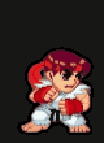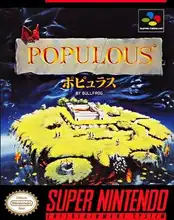Playing God: Revisiting Classic God Games of the Retro Era
Ever feel like you just want to reach into a little digital world and nudge things along? Maybe smite a few folks, raise a mountain, or just guide your loyal followers to prosperity? If so, you're probably a fan of the God Game genre, a fascinating niche that really hit its stride during the golden age of PC gaming. These weren't your typical strategy games; they put you in a position of divine power, albeit often with a mischievous streak.
What Exactly Is a God Game?
At its core, a God Game is a simulation where the player takes on the role of a powerful, often immortal being who influences a population or world from a high-level perspective. You don't control individuals directly (usually). Instead, you wield divine powers, shape the environment, issue mandates, and react to the actions of your tiny, often bumbling, followers.
Key characteristics include:
- Indirect Control: You influence, you don't micromanage.
- Divine Powers: Manifesting miracles, disasters, or environmental changes.
- Population Management: Keeping your followers happy, faithful, or just alive.
- World Shaping: Terraforming the landscape to suit your needs (or whims).
- Focus on Influence: Success often comes from guiding beliefs and actions rather than direct combat.
The Golden Age: Classic God Games We Loved
While the concept might pop up in other genres, the late 80s through the early 2000s gave us some truly iconic examples that defined what a God Game could be.
Populous (1989)
Often cited as the pioneer, Bullfrog Productions' Populous was revolutionary. You were a deity guiding your followers, the Papytes, against rival populations and their gods. Raising land out of the water, causing earthquakes, summoning volcanoes – it was pure, unadulterated digital divinity. Simple graphics, deep strategy, and that incredible Peter Gabriel soundtrack made it unforgettable.
Dungeon Keeper (1997)
Another Bullfrog masterpiece, Dungeon Keeper flipped the script. Instead of a benevolent god, you were an evil overlord building a dungeon to attract and then destroy heroic adventurers. This dark, humorous take on the genre, managing imps, building torture chambers, and slapping your minions into obedience, was a breath of fresh air. "It's good to be bad."
Black & White (2001)
Lionhead Studios (Peter Molyneux again!) brought the genre into the 3D era with Black & White. This game added a personal touch with your creature companion – a massive, trainable beast that learned from your actions, becoming benevolent or malevolent based on how you played. The tactile feel of grabbing villagers and dropping them where you wanted, or hurling fireballs, felt incredibly powerful.
Other notable mentions from the era include the unique city-building/god sim hybrid ActRaiser on the SNES, the spiritual successor Populous: The Beginning, and the quirky Creatures series (though more life sim, it had god-like elements).
Why These Games Still Hold Power
Beyond the thick layer of nostalgia, these classic God Game titles had something special. They offered a unique sense of scale and consequence. Your actions, big or small, rippled through the tiny worlds you oversaw. They encouraged experimentation and often had a playful, sometimes dark, sense of humor missing from many modern simulations. The indirect control was frustrating at times, sure, but it also made successes feel earned – you guided them to victory, you didn't just click units.
Bringing Back the Divinity: Playing Retro God Games Today
Feeling the urge to smite some heathens or build the perfect dungeon? Good news! Many of these classic God Game titles are readily available and playable on modern systems.
- GOG.com (Good Old Games): This is often the best place to start. Titles like Populous, Dungeon Keeper, and Black & White are available digitally, pre-configured to run on Windows 10/11. No fuss, just download and play.
- DOSBox: For true retro gaming enthusiasts, running the original DOS versions via an emulator like DOSBox is an option. This requires a bit more setup but offers an authentic experience.
- Archive.org: Sometimes, abandonware versions or demos can be found on sites like the Internet Archive, though legality and compatibility can vary.
Looking Back and Looking Forward
The classic God Game might not be as prevalent today as it was in its heyday, but its influence lives on in strategy games, simulation games, and even city-building games. Revisiting these foundational titles isn't just a trip down memory lane; it's a chance to experience a genre at its creative peak, where the power of creation and destruction was literally at your fingertips. So fire up your PC, grab your digital lightning bolt, and remember what it was like to truly play God.
FAQ
Q: What's the difference between a God Game and a typical RTS? A: RTS games focus on direct control of units in tactical combat. God Games focus on indirect influence, world-shaping, and managing a population's faith or needs from a higher level.
Q: Are there any modern God Games? A: While pure God Games are rarer, games like Cult of the Lamb (combines roguelike with cult management), Frostpunk (survival city-builder with tough moral choices), and WorldBox (a pure sandbox god simulator) carry elements of the genre.
Q: Which classic God Game should I start with? A: Populous is foundational but can feel dated. Dungeon Keeper has aged well due to its unique style and humor. Black & White offers a more modern (though still retro) experience with deeper simulation. If you're new, Dungeon Keeper or Black & White via GOG might be the easiest entry points.

